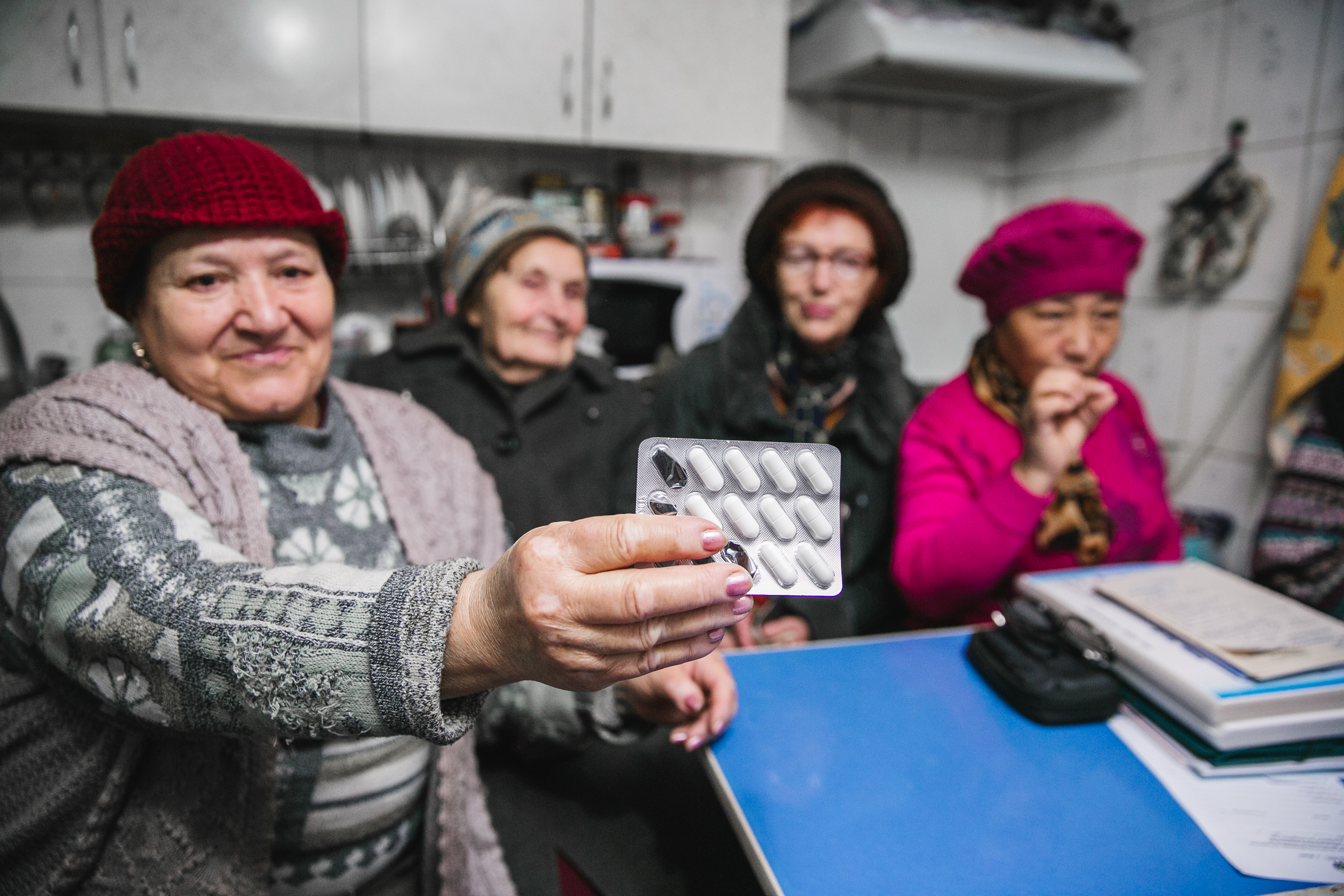
Diabetes is one of the leading causes of premature deaths worldwide – and diagnoses are rising rapidly in lower and middle-income countries. To combat the spread of diabetes – and help older people who live in poverty to manage the condition – Age International and it’s partners have launched two new programmes in Lebanon and Myanmar.
Glucose metabolism can become less effective in later life – making older people more susceptible to developing diabetes. If left unchecked, diabetes can lead to blindness, kidney failure, heart attacks, stroke and death. For those living in poverty, in countries with weaker health systems, the condition can be even more difficult to assess, address and treat.
Lebanon healthcare system struggling to cope with chronic conditions
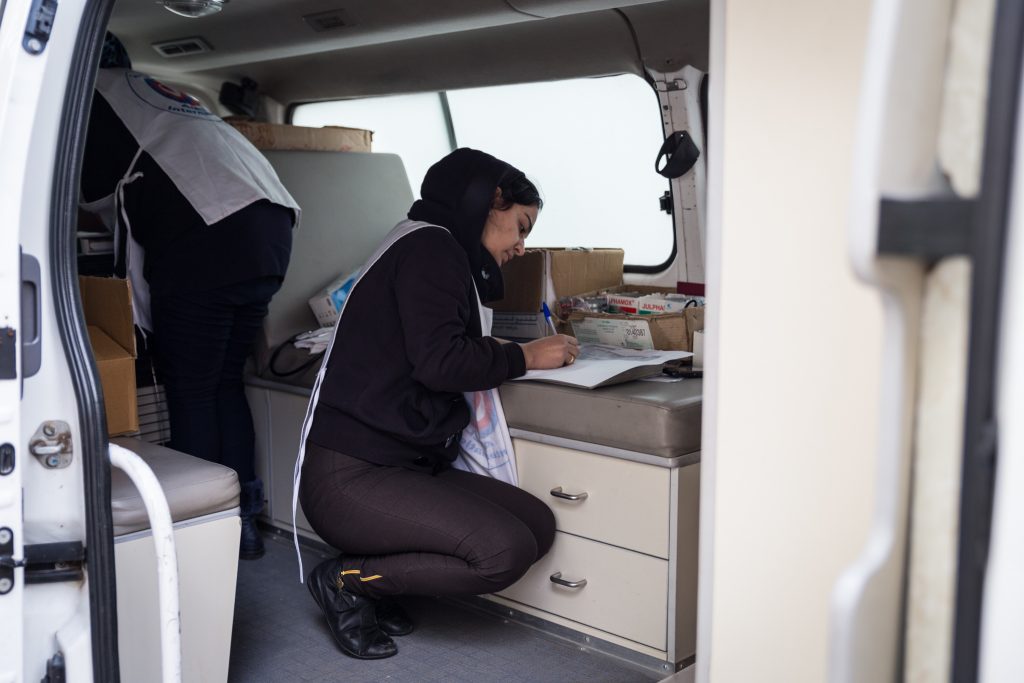
Nurse in one of our mobile medical units, Lebanon
- 64% of older people in Lebanon suffer from one or more chronic diseases
- Chronic diseases account for 85% of deaths
- 20-25% of diabetic patients are affected by depression
Lebanon is a small country, but hosts the largest number of refugees in the world when measured against population; registered refugees make up 34% of the population, and many more are unregistered. The conflict in Syria has been behind most of the recent rise. This rapid population increase has placed extreme pressure on all public services, including healthcare.
Diabetes care – as with all healthcare – is mostly privatised in Lebanon. The cost of healthcare is high – and there are gaps in the provision of drugs.
All of these factors combine to make diagnosis and treatment of diabetes a major challenge for the poor and vulnerable. Yet, in order to prevent worsening health conditions, it is essential that diabetes is diagnosed and managed.
How Age International is addressing diabetes in Lebanon
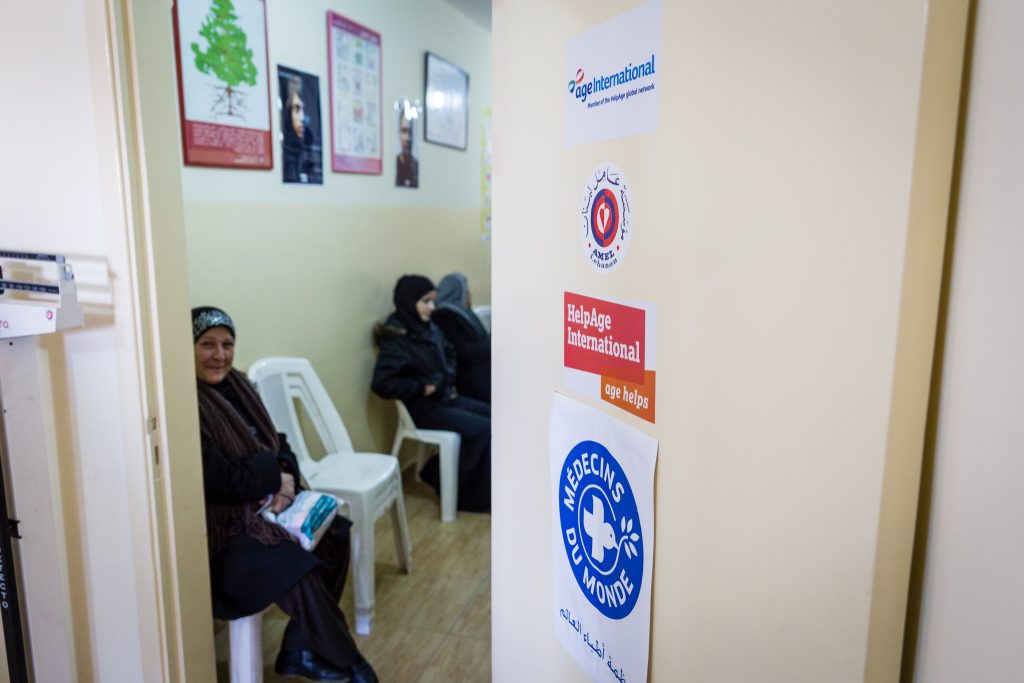
Health centre in Lebanon
Age International has been supporting work in the region since 2013, supporting local organisations and our global partner HelpAge International. Together, we are:
- Making sure diabetes is diagnosed, by running free screening, testing and referral services – and reaching out directly to those who can’t travel to clinics
- Supporting vulnerable older people to manage their diabetes – by making sure they receive a tailored care plan
- Raising awareness and helping older people understand how to manage the condition, by supporting group education sessions, running awareness-raising campaigns and producing educational materials
- Giving practical support to older people suffering from depression, by training psychologists and social workers, and offering free psychological support to older men and women living with diabetes
- Helping older people with diabetes to engage with the community and reduce isolation, by running group support activities (like healthy cooking classes)
Training doctors and nurses in Myanmar
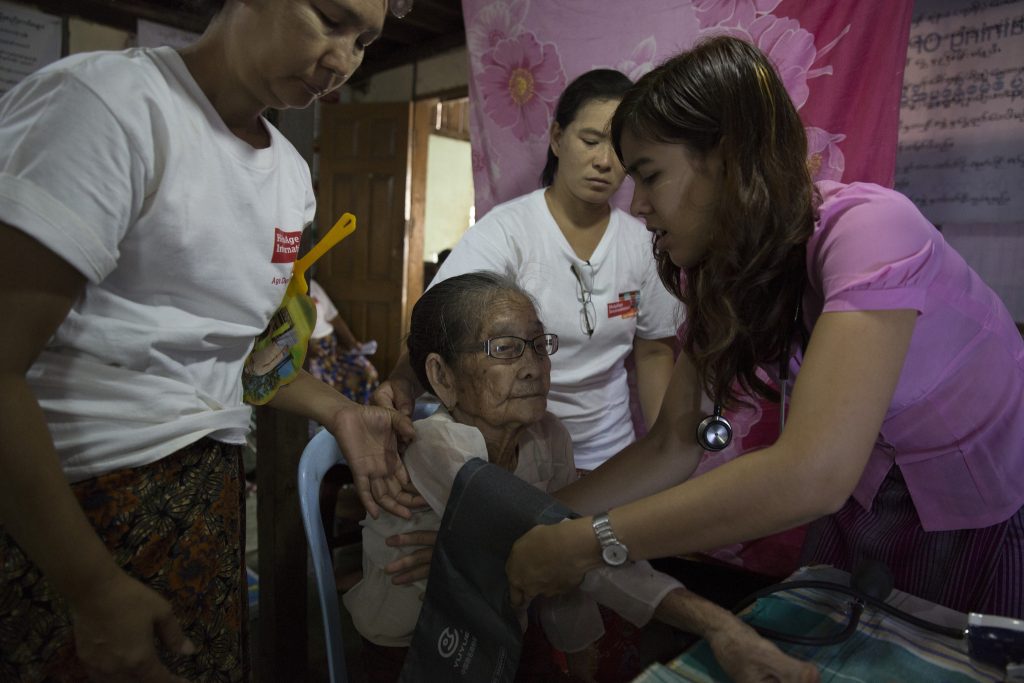
Dr May treats a frail elderly lady at our pop-up clinic in Myanmar
Non-communicable diseases affect millions of people in Myanmar, yet essential care is almost non-existent. Almost half a million people die annually from non-communicable diseases.
Age International is supporting a programme to train medical staff to diagnose and treat non-communicable diseases, particularly in older people. Ultimately, this will improve the lives of millions of people who suffer from non-communicable diseases. At least 2.5 million people with raised blood glucose will have access to diabetes care.
Learning from the Kyrgyzstan diabetes programme
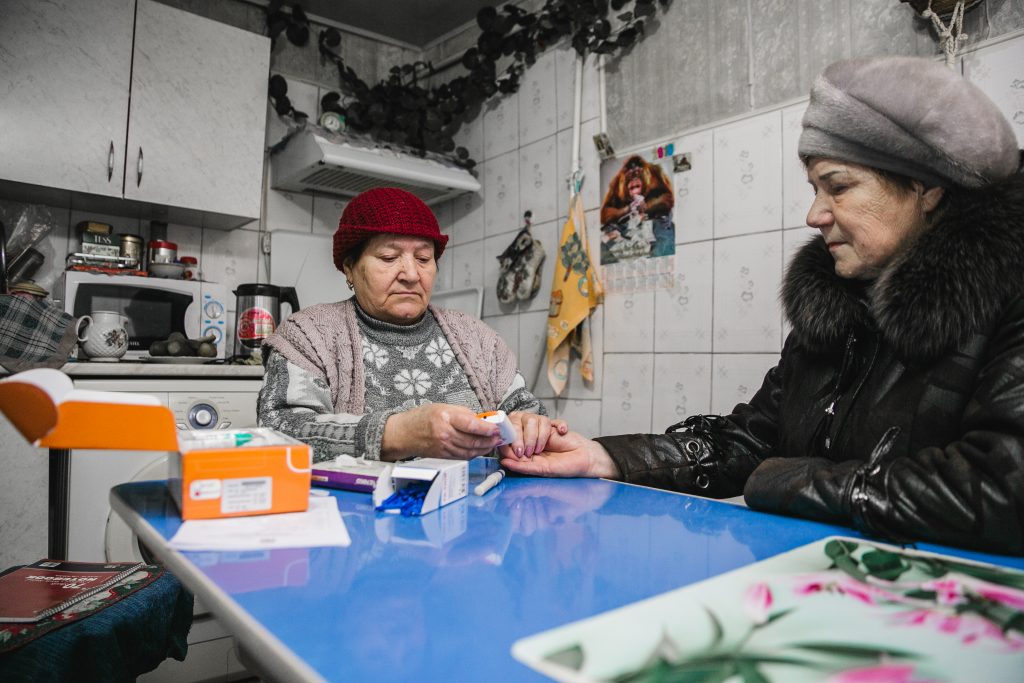
Tatiana checks the sugar level of a group member in Kyrgyzstan
In Kyrgyzstan, our partner HelpAge International has recently completed a programme to help older people manage their diabetes.
Self-help groups were provided with all the materials for prevention – as well as glucometers and test strips for screening. To reach older people, diabetes screening campaigns were run in banks, on days when pensions were being paid. People with high sugar levels were referred to a specialist. When a diagnosis was confirmed, the self-help groups provided support and advice.
‘I knew very little about diabetes before’
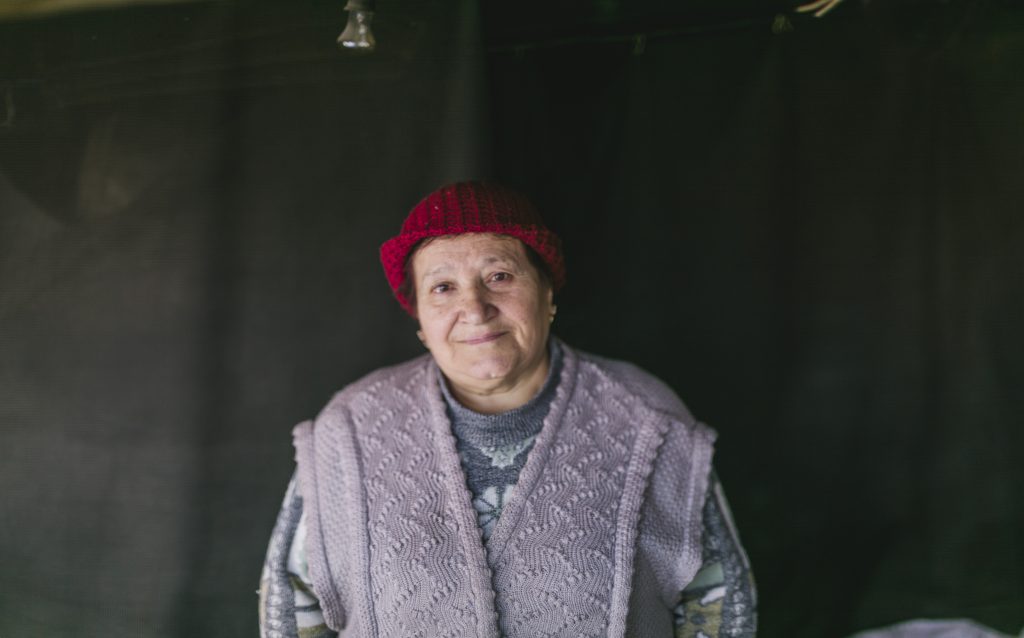
Romanova Tatiana
Romanova Tatiana Ivanovna, who is 72, explains: ‘I was surprised to find out that I had diabetes. I knew very little about it before.’
The great-grandmother joined a self-help group and took part in diabetes campaigns.
‘Now I’ve learnt that I can still maintain an active life if I follow a diet, exercise regularly and check my blood sugar level on a regular basis,’ she says. ‘Being in a group also helped to be in touch with other older people, exchange news, knowledge and ideas.’
